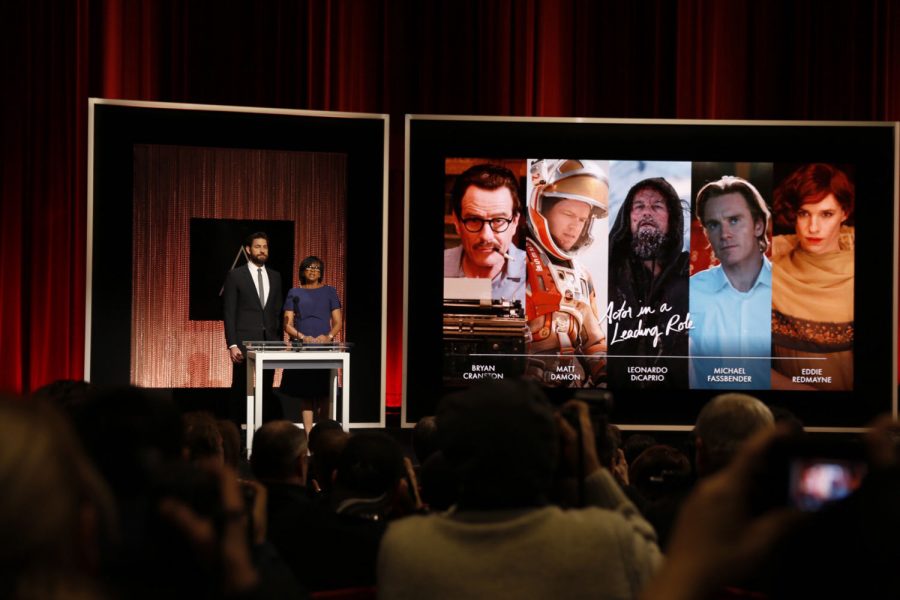#OscarsSoWhite: Black actors snubbed, shows racial inequality in America
Racial diversity is a progressively growing hot topic for media outlets all across the world, but how do reporters and people in the media decide what to write about and what not to write about?
Two incredible diversity-focused stories sparked attention in the past few weeks, and the amount of coverage each story got sheds some light on how the media is choosing to display diversity in our world. The first issue is the Oscars increasingly white-only nominations.
This issue has been ongoing for a few years now and with actors like Jada Pinkett Smith and Spike Lee foregoing attendance, the media couldn’t be more excited.
This is the second year in a row that the Oscars have not had any black nominees on the ballot.
In an effort to solve the PR nightmare that a lack of diversity has brought to the Oscars, they have employed comedian Chris Rock to host the event, and The Academy is looking into many more high-profile black celebrities to present awards throughout the evening.
Meanwhile the #OscarsSoWhite hashtag is trending on Twitter and receiving more exposure every day. If we keep pushing coverage on pseudo-events and celebrities, it will be increasingly difficult to understand the deeper issues plaguing our society today.
The source of the problem doesn’t seem to be the Academy itself. Rather, the lack of diversity represented in Hollywood needs to be addressed. If African Americans want more representation at the Academy Awards, then more blacks need to be employed in the motion picture process throughout the year. The majority of motion picture actors and producers tend to be represented by the older white male population. This seems to be the root of the problem. The attacks of Smith and Lee on the Academy are not correcting the problem, they are contributing to it.
Ideas about what constitutes a good movie or a great piece of art are entirely subjective. These ideas are influenced by individual perceptions on issues such as race and culture, as opposed to a producer sending a racist message. While Chris Rock hosting the Academy Awards will definitely contribute to a more diverse experience, as will the inclusion of black presenters throughout the show, it is important to address that racist issues cannot simply be solved by employing a black host, but by engaging a more diverse community in the motion picture industry and all industries in general.
The second issue is in regards to former police officer Daniel Holtzclaw, who was a police officer in Oklahoma City. After being accused of the rape and sexual assault of four black women while on duty, Holtzclaw was sentenced to the maximum sentence of 263 years in prison. Found guilty for 18 to 36 charges of sexual assault, the former officer was sentenced in December.
The police officer was using background check technologies to look up information about African American women’s backgrounds and would then target women that had criminal records.
The most interesting part of this story is that the entire jury was white. There was no diverse representation present in the courtroom and yet, what appears to be a racist hate crime was criminalized to the highest degree possible.
It is more important to talk about real issues facing society today as opposed to what Kim Kardashian is doing or how Donald Trump chooses to style his hair. With a millennial population that seems to be getting more and more distracted everyday with the rise of new and innovative technologies, a renewed focus on issues such as the Holtzclaw trial and more intellectual content will allow for a more thriving and diverse community with a lot more substance.
Progress is being made with efforts to solve the world’s issues facing diversity and racism. It is the media’s responsibility to shed light on the positive aspects of each story so that the public may have a more holistic response to these important issues.







